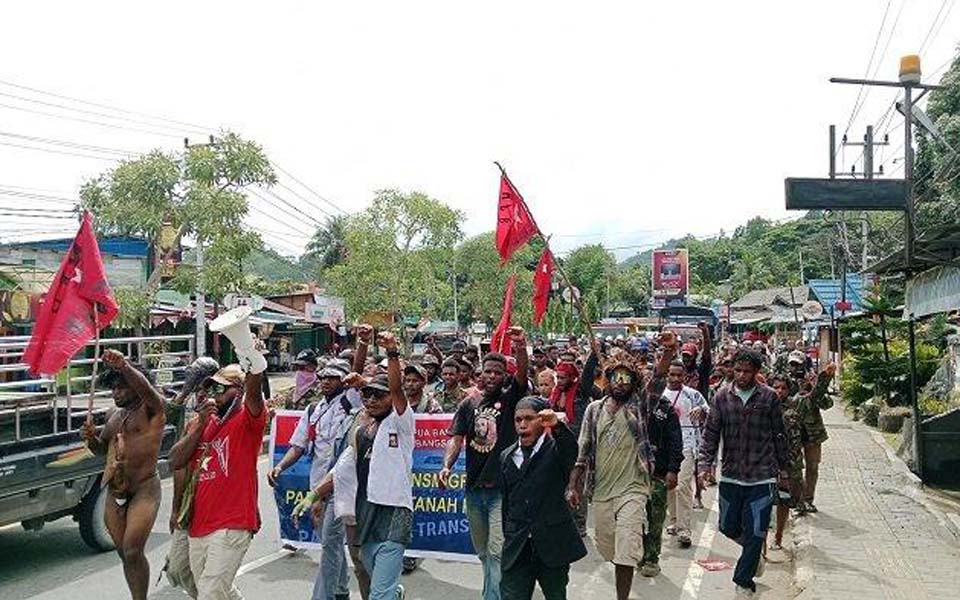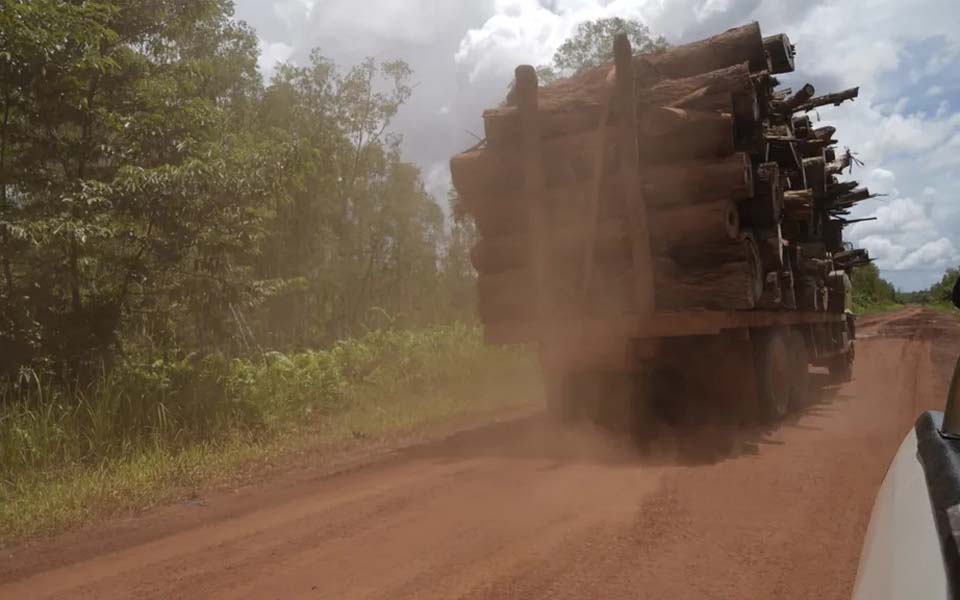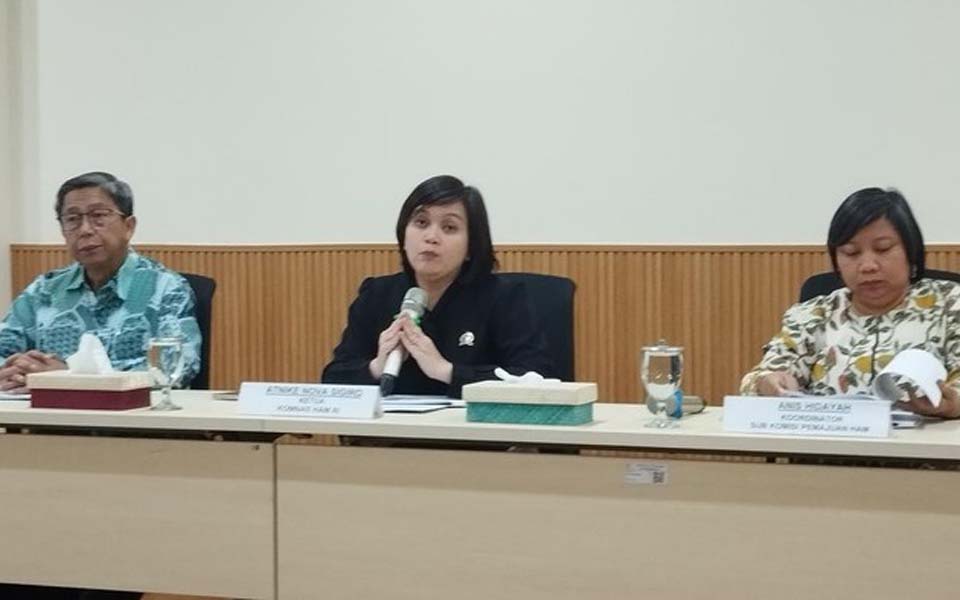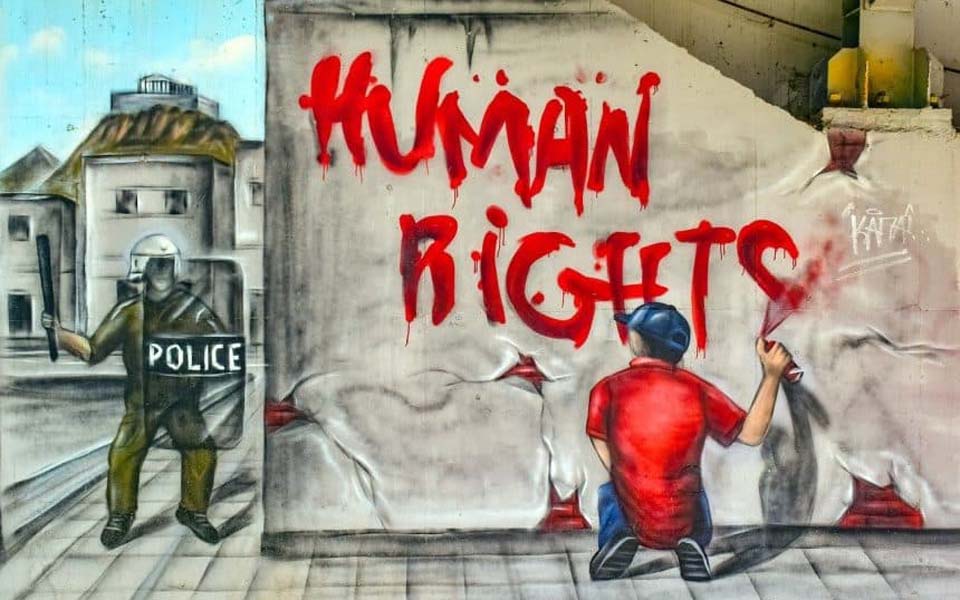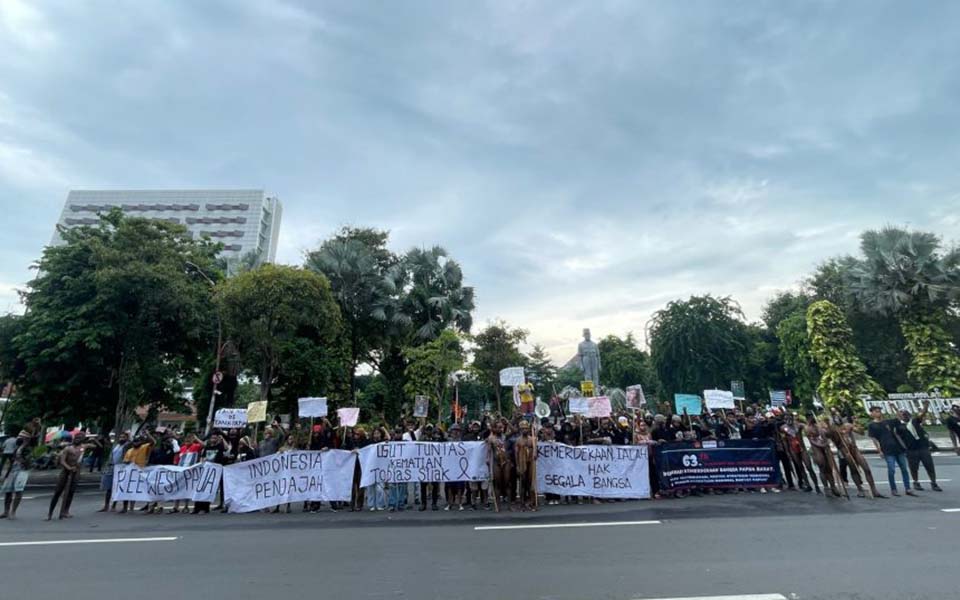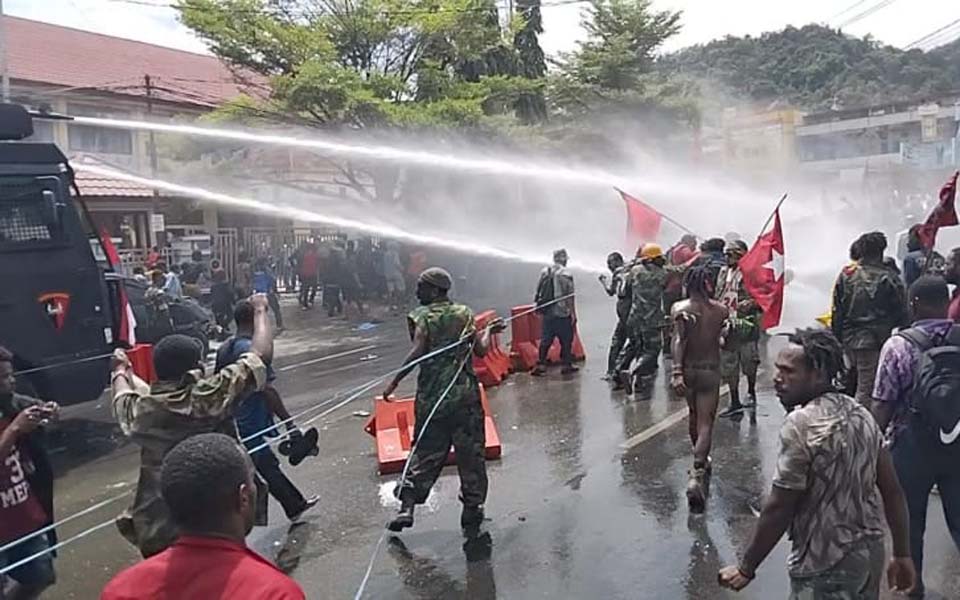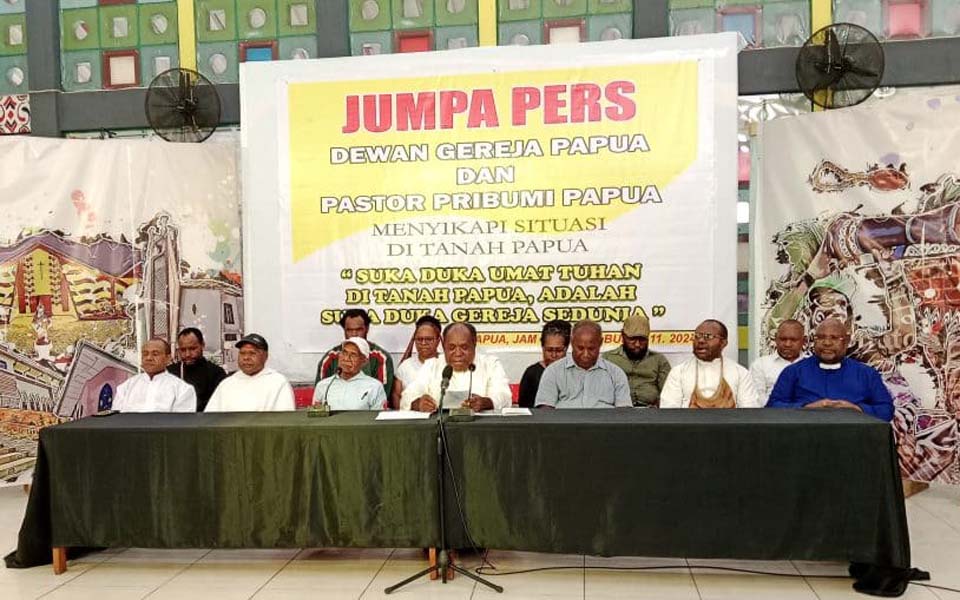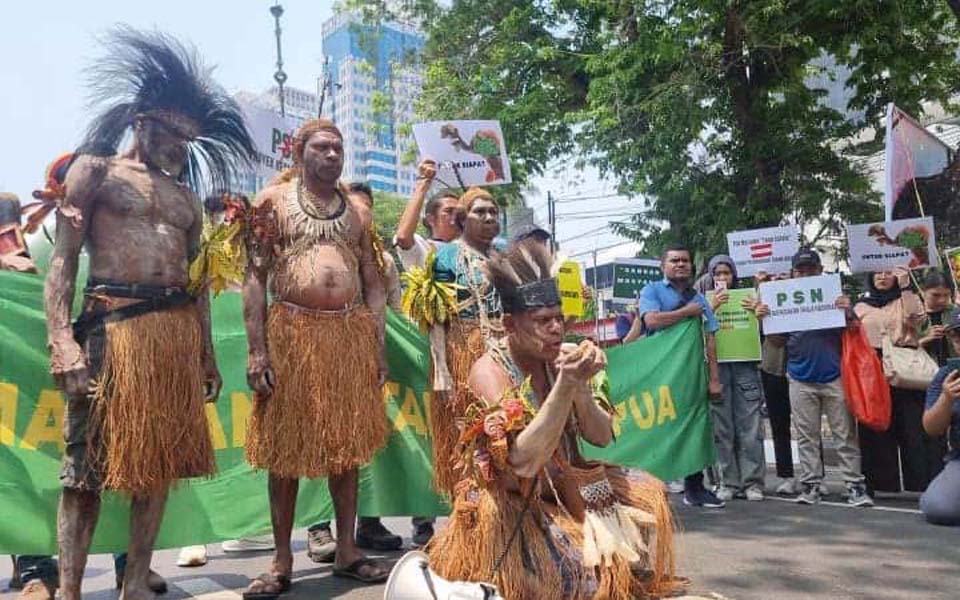Yulianus Magai, Jayapura – Hundreds of Papuans took to the streets of Jayapura city on Friday November 15 to oppose the government's plan to revive the transmigration program to Papua. They are concerned that the program will threaten their existence and identity as indigenous Papuans.
The protesters, who came from the West Papua National Committee (KNPB), held demonstrations at a number of points in the city.
In Abepura district, they gathered at the front gates of the lower Cenderawasih University (Uncen) campus. In Heram district meanwhile, the KNPB protesters held an action starting at the Waena Expo then to the Waena III State Housing Complex (Perumnas).
They carried dozens of red KNPB flags with the symbol of a star with word "Resist" (Lawan) and several protesters wore traditional penis gourds (koteka).
Tensions began to rise when protesters opposing the transmigration program wanted to hold an action at the Abepura traffic circle which had already been cordoned off by police. Some of the demonstrators ended up scuffling with local police.
The protesters had not even had an opportunity to give speeches when police forcibly dispersed the demonstrators by firing teargas. "We wanted to hold speeches, but the police had already occupied the Abepura traffic circle", said Sing, a demonstrator in Abepura.
Sing said the police pursued the demonstrators while firing the poison gas. "They (the police) advanced and pursued us while firing teargas, the protesters fled in every direction. We mostly followed the road in an uphill direction towards the Ninming dormitory", he said.
The situation in the area of the Abepura traffic circle area was tense and transportation services were disrupted when the protesters scattered. A number of shops had to close.
Police also forcibly disbursed the KNPB protesters at the Uncen front gate. This impacted on the traffic flow with a traffic jam snaking along the length of Jalan Abepura towards Sentani.
Serious threat to indigenous Papuans
Earlier, the action coordinator at the Waena II Perumnas, Mungguar Pahabol, said that transmigration represents a serious threat to the existence of indigenous Papuans (OAP).
"This represents a serious threat to indigenous Papuans, so the program must be rejected. It will damage our social and cultural way of life", said Pahabol in a speech.
They are concerned that the expansion of the transmigration program by the central government in the regions will threaten their existence and identity and that indigenous peoples or indigenous Papuans will face the threat of the loss of land.
Pahabol also called on the Papuan people not to sell their land too quickly. "If the land is all gone, where do you want to live?", he said, adding that the transmigration program to Papua being touted by President Prabowo Subianto its illegal.
He said that none of the decisions taken by Jakarta involve indigenous Papuans. This is because, according to Pahabol, the government always prioritises programs going ahead without thinking about the serious impacts on the survival of indigenous Papuans.
The demonstrators also highlighted the land conflicts that often occur due to transmigration programs. They are asking the government to pay more attention to the rights of indigenous peoples and stop all policies that harm them. "This is coercion so we ask that this transmigration program must be re-evaluated", he concluded.
These actions are evidence that opposition to the transmigration is spreading in Papua. The Papuan people hope that the government will take concrete steps to protect their rights.
As of this article being posted, Tribun Papua is still trying to confirm with police regarding the policy of forcibly dispersing the protesters.
MPR rejects transmigration program
Earlier, the South Papua People's Council (MRPS) declared its opposition to the transmigration program being touted by the central government.
The plan has raised concerns for the people of Papua, especially local indigenous people, because it is believed that it will give rise to social tensions, in particular by sidelining the rights of indigenous Papuans.
The MRPS believes that the transmigration program will have negative and positive impacts.
In positive terms, MRPS Chairperson Damianus Kayayu said that transmigration was the transfer of residents for welfare purposes. Conversely, it will change indigenous communities' lifestyles and threaten their special rights to their customary land.
He also alluded to the legality of local village areas and ex-transmigration (ekstrans) villages. According to Kayayu, the extrans villages have land legality with clear land certificates, while local villages do not yet have a clear status.
Kayayu said that the MRPS held a joint meeting which concluded with a rejection of the transmigration program touted by governments in the Papua region.
"We the MRPS held a joint meeting and our decision was to reject transmigration", he said. "We focused on how the welfare of our people is, the indigenous Papuans themselves internally, even if the central government continues to implement it, our position is clear, namely rejecting it", he asserted.
Meanwhile Transmigration Minister Muhammad Iftitah Sulaiman has explained that the transmigration will not involve people from outside Papua, so the population transfers will only occur regionally or be local transmigration.
"That's not true. So no people from outside Papua will came to Papua through the transmigration program", Sulaiman said in Jakarta on Thursday November 7.
- Video of police breaking up protest against transmigration in Jayapura posted on X by Veronica Koman: https://twitter.com/i/status/1857317046696198403
[Abridged translation by James Balowski based on two articles by Tribun News on November 15. The original title of the lead article was "Aksi Tolak Transmigrasi Digelar di Jayapura, KNPB: Tanah Papua Bukan untuk Dijual".]





